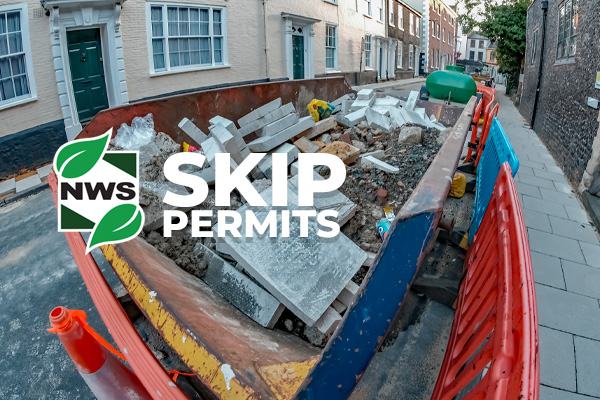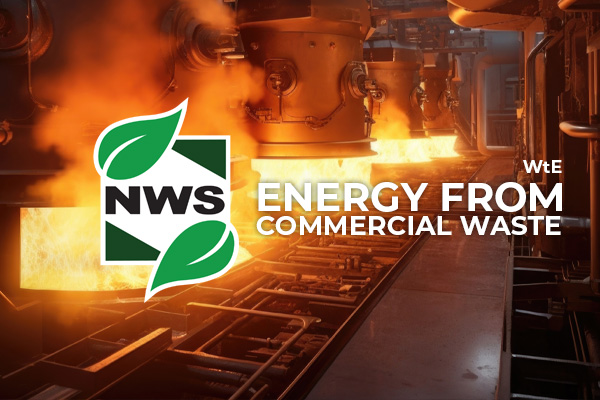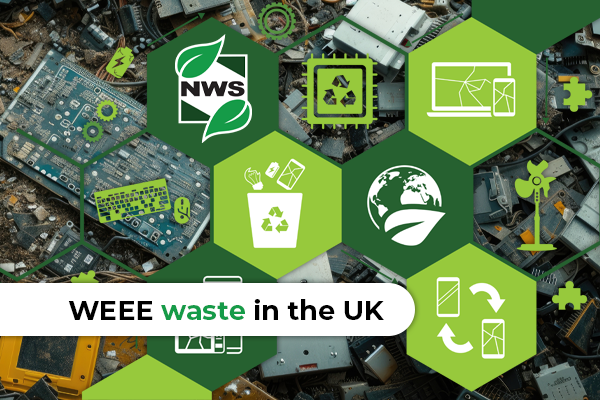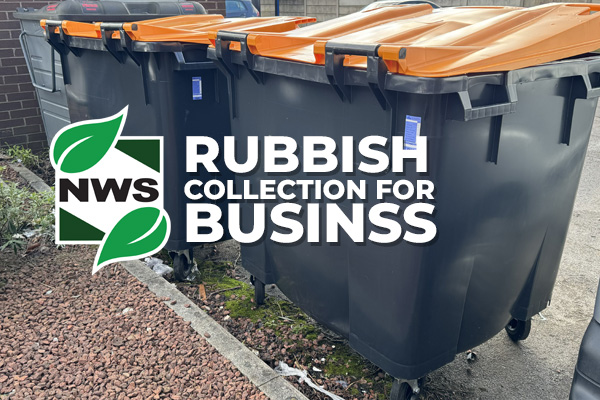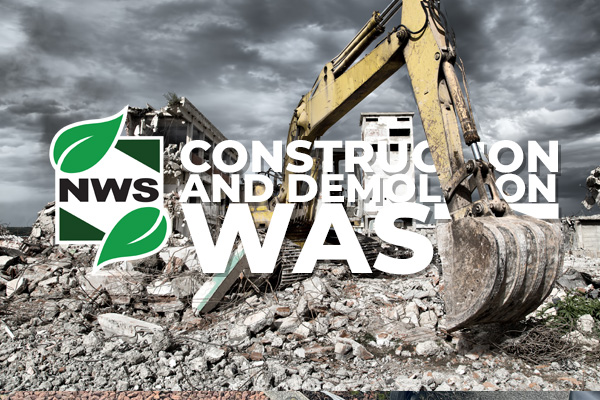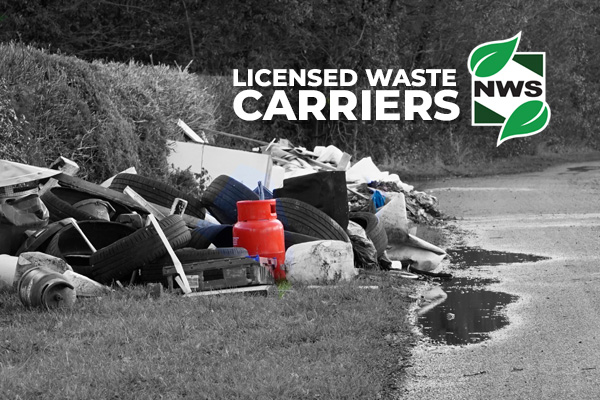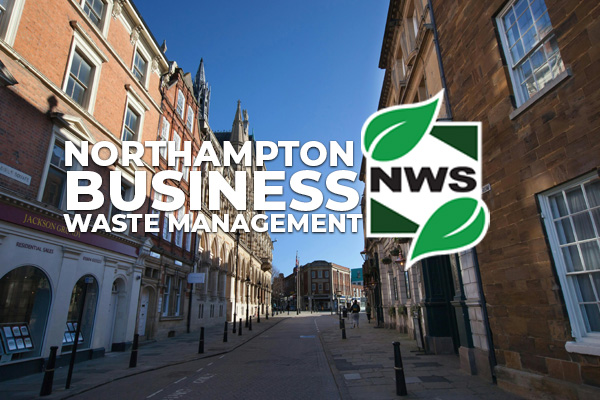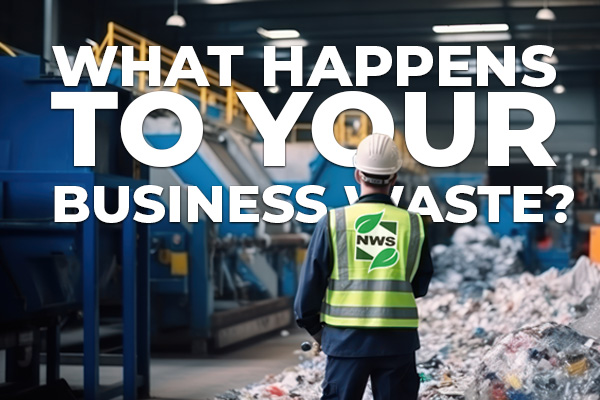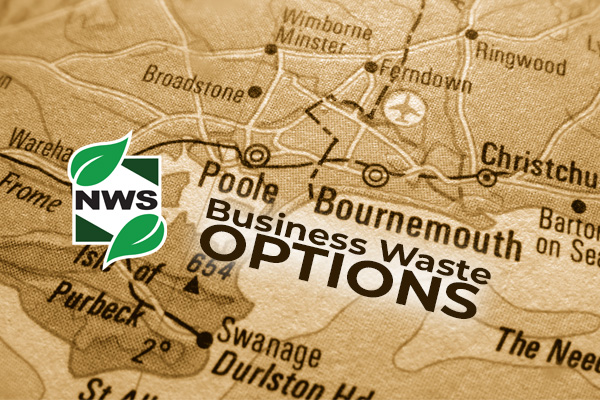Efficient waste management is essential for environmental sustainability and public health. Don’t put these items in your business bin. In the United Kingdom, regulations govern what can and cannot be disposed of in commercial waste bins. Understanding these regulations is crucial for businesses to ensure compliance and contribute to a cleaner environment. This article delves into the prohibited items in commercial waste bins for collection in the UK, covering a wide range of materials from soil and rubble to hazardous chemicals and non-recyclable items such as black bags and waxed paper cups.
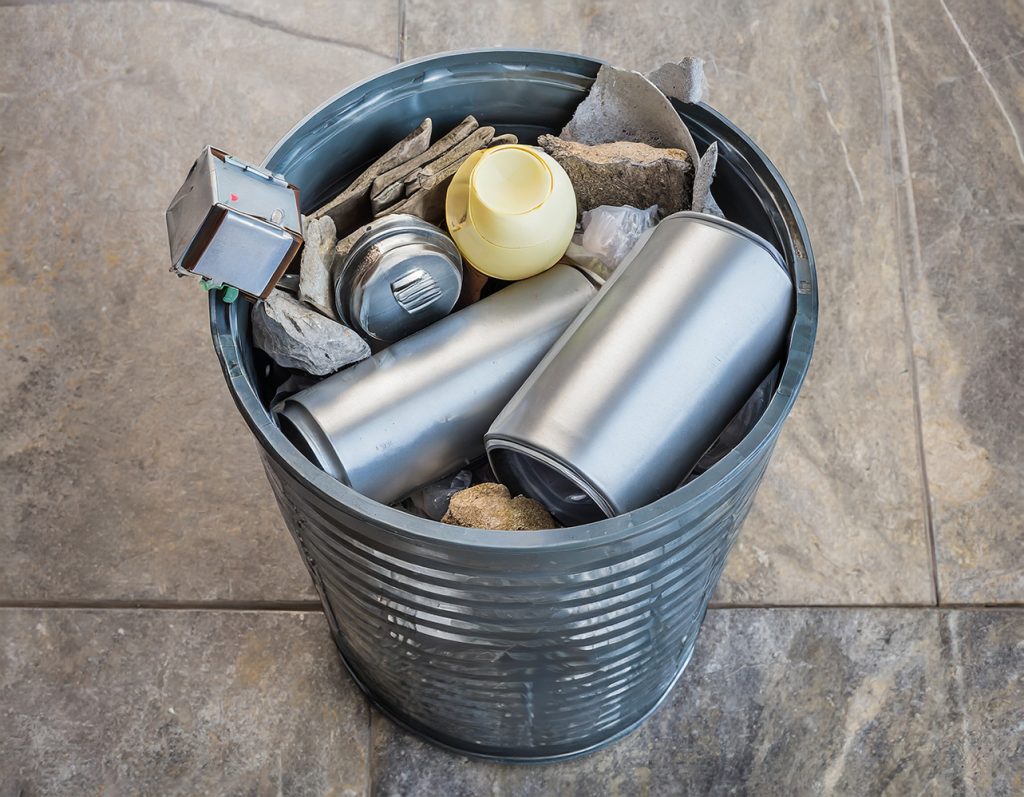
Soil and Rubble
Materials like dirt, rocks, concrete, and bricks, are not permitted in commercial waste bins. These materials are heavy, bulky, and not suitable for standard waste collection processes. Moreover, they can potentially damage collection vehicles and complicate waste disposal procedures. Businesses should explore alternative disposal methods such as recycling or hiring specialized waste management services for these materials. Don’t Put These In Your Business Bin
Building Material
Building materials similar to soil and rubble, building materials such as wood, metal, and plasterboard are prohibited in commercial waste bins. These materials are often generated from construction or renovation activities and require separate disposal channels. Businesses should segregate building materials for recycling or consider donating reusable materials to minimize waste and promote resource conservation.
Liquid Waste
Liquid waste: including paints, oils, and other chemicals, poses environmental and safety hazards and is not permitted in commercial waste bins. Improper disposal of liquid waste can lead to soil and water contamination, endangering ecosystems and public health. Businesses should follow proper procedures for disposing of liquid waste, such as utilising designated collection points or hiring licensed waste disposal companies.
Furniture
Old furniture items like sofas, chairs, and tables are not allowed in commercial waste bins. These bulky items occupy significant space in bins and can impede waste collection processes. Instead of disposing of furniture in commercial bins, businesses should explore options for donation, recycling, or arranging for bulky waste collection services to ensure proper disposal.
Hot Ashes
Hot ashes from fireplaces, wood stoves, or barbecues are strictly prohibited in commercial waste bins. Even when cooled, ashes can retain heat and pose a fire hazard during collection and transportation. To prevent accidents and ensure safe disposal, businesses should allow ashes to cool completely before disposing of them in designated containers or composting them properly.
Car Parts
Disposing of car parts, such as tires, batteries, and engine components, in commercial waste bins is not permitted. Don’t put these items in your business bin. These items contain hazardous materials and require specialised disposal methods to prevent environmental contamination. Businesses should utilize recycling programs or authorised disposal services for car parts to ensure compliance with regulations.
Electrical Items and Batteries
Electronic waste, including old appliances, computers, and batteries, cannot be disposed of in commercial waste bins. These items contain valuable materials that can be recycled or reused. Businesses should take advantage of electronic waste recycling programs or designated drop-off points for proper disposal to minimise environmental impact and comply with regulations.
Fluorescent Tubes/Low Energy Light Bulbs
Fluorescent tubes and low-energy light bulbs contain hazardous materials such as mercury and should not be disposed of in commercial waste bins. Businesses should utilise specialised collection services or designated drop-off points for recycling fluorescent tubes and light bulbs to prevent environmental contamination and comply with regulations.
Chemicals
Businesses must adhere to regulations regarding the storage, handling, and disposal of hazardous substances to prevent pollution and ensure compliance with the law.
Weed Killer
Weed killer and other garden chemicals should not be disposed of in commercial waste bins due to their potential to contaminate soil and water sources. Proper disposal methods for garden chemicals should be followed to mitigate environmental impact and protect public health. Don’t put these items in your business bin.
Infectious Materials
Medical waste, including syringes, bandages, and other infectious materials, must not be disposed of in commercial waste bins. Proper handling and disposal of medical waste are essential to prevent the spread of infections and protect public health. Businesses that generate medical waste should work with licensed waste management companies to ensure safe and compliant disposal.
Non-Recyclable Items
Items such as black bags, waxed paper cups, crisp packets, sweet wrappers, food and canteen waste, liquids, polystyrene, glass, ceramics, wood, textiles, lengths of strapping, and hard and rigid plastics are prohibited in commercial waste bins as they are not recyclable or pose challenges for waste management processes. Businesses should explore alternative disposal methods for these items to reduce waste and promote sustainability.
And Finally don’t put these items in your business bin
Speak to the team at Nationwide Waste Services to arrange for your waste collections. Understanding the prohibited items in commercial waste bins for collection in the UK is essential for businesses to comply with regulations and contribute to environmental sustainability. As a responsible business owner you need to makes your you don’t put these items in your business bin. By adhering to proper waste disposal practices and exploring alternative disposal methods for prohibited items, businesses can minimise their environmental footprint and promote a cleaner, healthier environment for all.

